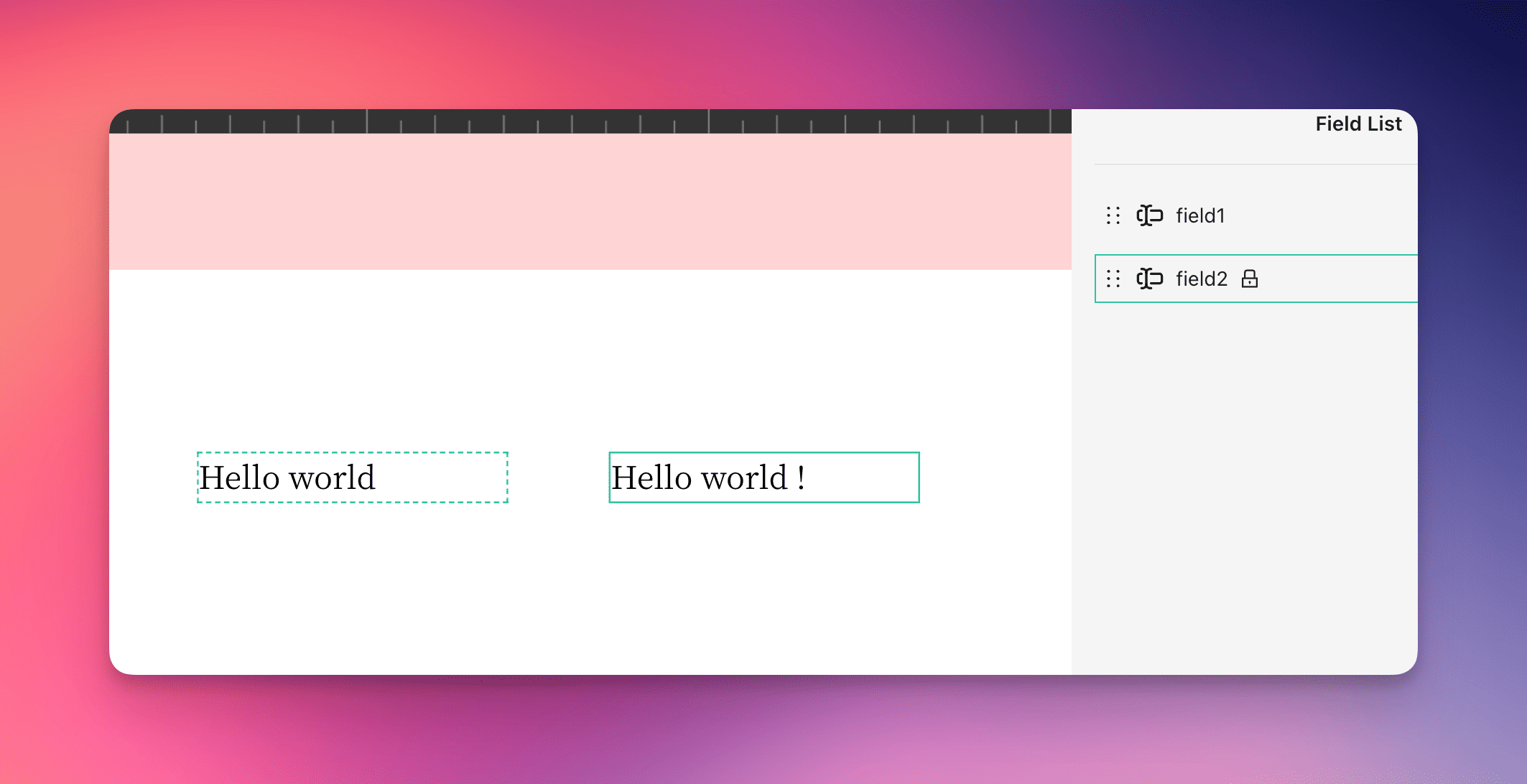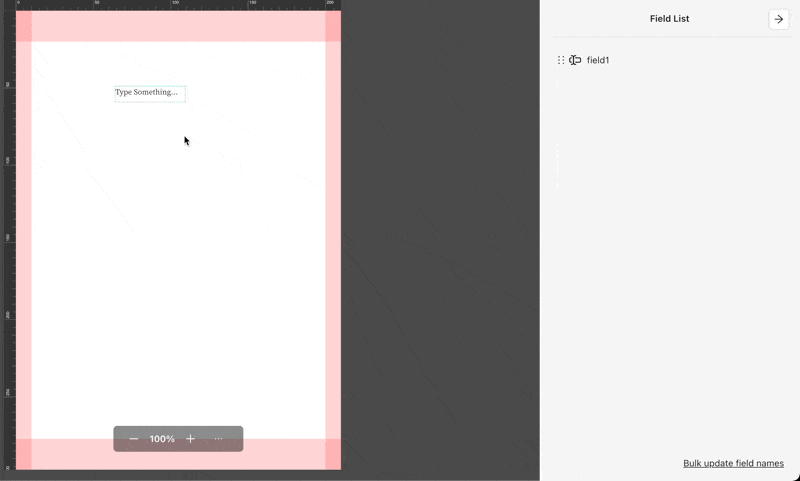Expression
Expressions are a feature that evaluates expressions enclosed in {}.
The simplest example is {1+1}, which evaluates to 2.
In pdfme, expressions can be used not only for simple calculations but also by utilizing user input.
For example, consider the following template:
{
"schemas": [
[
{
"name": "field1",
"type": "text",
"content": "Hello world",
...
"readOnly": false,
},
{
"name": "field2",
"type": "text",
"content": "{field1} !", // Expression!
...
"readOnly": true,
}
]
],
"basePdf": { "width": 210, "height": 297, "padding": [20, 10, 20, 10] },
"pdfmeVersion": "5.0.0"
}
field2 will have the value Hello world !. The expression {field1} ! is evaluated like below:

This means that {field1} is replaced with the value of field1, and ! is appended to it.
Use Cases
The following use cases can be considered:
Displaying Date or Page Numbers in Footer and Header
For example, you might want to display the creation date of the PDF in the header or display page numbers in the footer. Although headers and footers are explained in detail here, expressions can also be used in the staticSchema used for headers and footers.
Reusing User Input for Display
You can reuse values entered by the user for display. For instance, if there are fields firstName and lastName entered by the user, you can concatenate and display them as {firstName + " " + lastName}.
This improves usability by eliminating the need for users to enter similar information multiple times.
Managing Values in One Place
By using expressions, you can manage values in one place. For example, if there is a value taxRate, you can simply change taxRate, and it will be reflected in all places where it is used, making changes easier.
How to Use, Specifications
After understanding the overview and use cases, here is an explanation of the specific usage and specifications.
How to Use Expressions
Expressions can be used in the schema property when the readOnly property is set to true. From the designer, you can set readOnly by unchecking the Editable checkbox.
As shown in the GIF below, you can start using expressions by unchecking the Editable checkbox.

In other words, fields where expressions are used cannot be edited by the user.
Limitations and Security of Expressions
- Only Arrow Functions are supported.
- The
evalfunction cannot be used. prototypecannot be used.- Only the following global objects and their methods can be used:
- Math
- String
- Number
- Boolean
- Array
- Object
- Date
- JSON
- isNaN
- parseFloat
- parseInt
- decodeURI
- decodeURIComponent
- encodeURI
- encodeURIComponent
For detailed specifications, refer to this implementation.
Variables That Can Be Used Within Expressions
- User Input Values
- Values entered in Multivariable Text or Table that can be parsed as JSON can be used after parsing.
- Values of Other
readOnlyFields- If an expression is used in the value of another
readOnlyfield, the value after the expression is evaluated is used.
- If an expression is used in the value of another
- Embedded Variables
currentPagetotalPagesdate (YYYY/MM/DD)dateTime (YYYY/MM/DD HH:mm)
Examples of Expressions
The following are examples of expressions that can be used:
- subtotal:
'{orders.reduce((sum, item) => sum + parseFloat(item[1] || 0) * parseFloat(item[2] || 0), 0)}' - tax:
'{Number(subtotalInput) * Number(tax.rate) / 100}' - total:
'${Number(subtotal) + Number(tax)}'